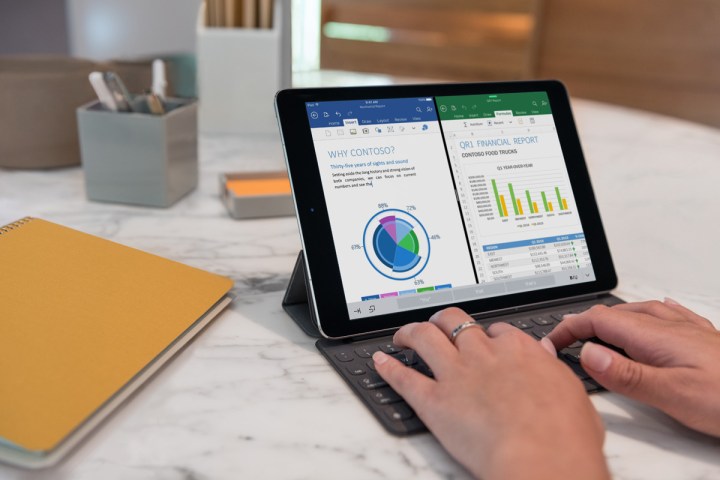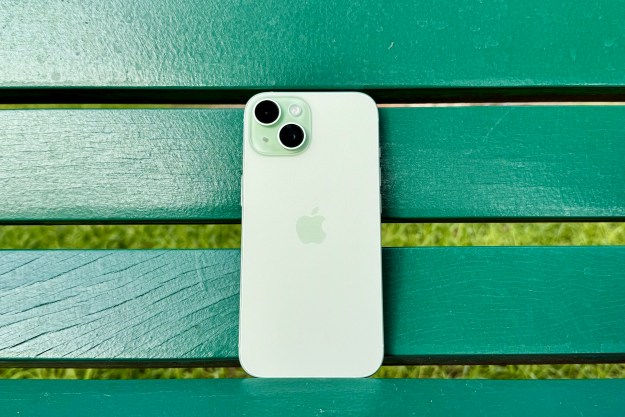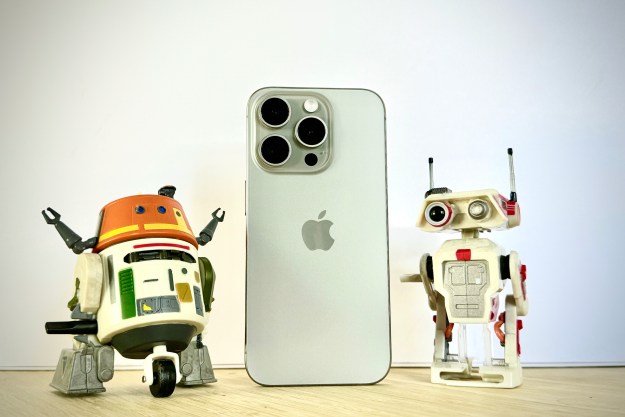
Now it appears Apple is considering the same with the iPhone and iPad — if an application published by the U.S. Patent and Trademark Office is any indication.
More: Samsung Galaxy S8 rumors and news leaks
The diagrams show two MacBook-style shells, one with a slot for an iPhone where the trackpad would normally go, and one in place of the computer’s display, where you’d dock an iPad. According to the patent, which was discovered by AppleInsider, the notebook portion could house additional ports, an external graphics card for added power, and even more memory — alongside of a physical keyboard, of course.
The iPhone or iPad — termed the “host” device in the language of the filing — could interface with the dock via a physical connector, like Lightning, or wirelessly via Bluetooth. When docked, an iPhone’s touchscreen could serve as a makeshift trackpad. The iPad-compatible variant, meanwhile, comes with its own trackpad, but the tablet would also act as a touchscreen. Many have clamored for Apple to build a MacBook with a touchscreen, as lots of Windows notebooks have that capability nowadays, and this proposal would almost make that a reality.
Like so many other pitches to transform mobile devices into dedicated workstations, Apple’s bears some promise. But then there are the typical questions. Would it simply run a larger version of iOS, or another operating system more akin to MacOS? If it did use another operating system, what apps could it run? How would iOS apps scale to the larger screen? Would developers be willing to develop specialized apps for this thing? And, for iPad Pro users, would the dock play nice with the Apple Pencil?
These questions may seem secondary to the practicality of carrying a desktop-caliber computer in your pocket wherever you go, but they do impact usability. And they’re the reason why many prospective customers simply opt to buy a dedicated notebook or desktop for more serious use cases, rather than having to wonder about whether their phone or tablet will be up to the task.
It’s also worth noting that Apple is not the only major smartphone manufacturer involved with this feature. Windows Phones have had it for years — Microsoft calls it Continuum. And then, of course, there’s the recent rumor that Samsung will release a pocket-sized dock alongside the upcoming Galaxy S8 — complete with its own cooling fan, no less — that will turn that phone into a desktop as well.
It’s always been a popular idea, and perhaps mobile technology has finally reached a point where it’s more viable for users than it ever was before. Compared to other Apple patents that have surfaced as of late — touch-enabled iPhone cases, rollable iPads, and cracked screens that diagnose themselves — this one certainly appears to be the most immediately possible. The filing dates back to September 2016, and as always with patents, does not guarantee the product will see the light of day.
Editors' Recommendations
- Apple’s new iPad Air could be in trouble
- iPhone 16: news, rumored price, release date, and more
- This one Apple Fitness feature completely changed how I exercise
- We finally know when Apple will announce its 2024 iPads
- Nomad’s new iPhone case and Apple Watch band may be its coolest yet




